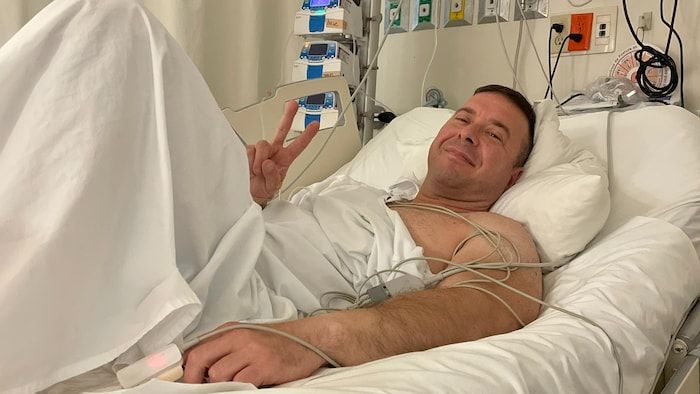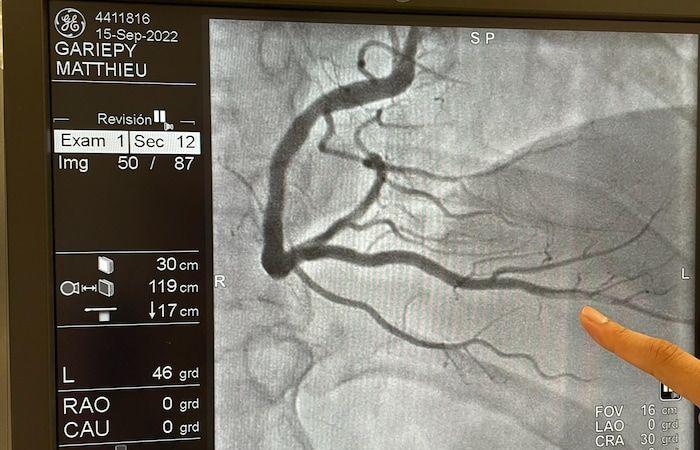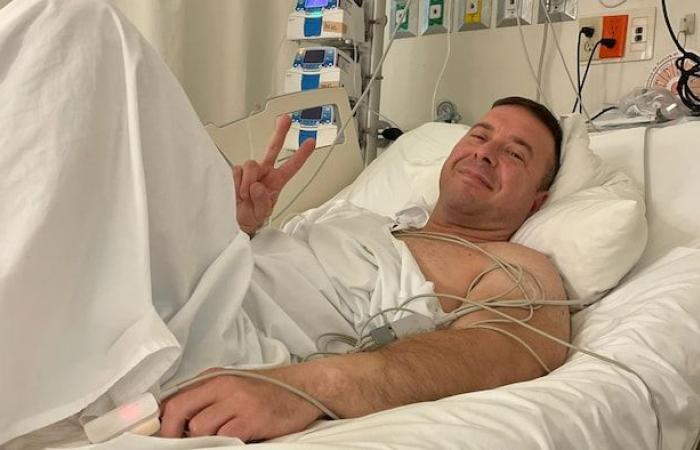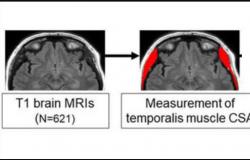While traveling in Mexico in September 2022, a man from the Capitale-Nationale region had to wait more than 36 hours before being able to undergo surgery necessary for his state of health. This is because its insurer, Beneva, had to carry out its investigation before agreeing to pay for the intervention. A delay which could well have had long-term consequences for him, believes the couple.
Matthieu Gariépy and his partner, Catherine Ippersiel, considered themselves in good hands when they left the country on September 11, 2022 to enjoy the sun in Riviera Maya in Mexico for a week. Like many Quebecers, they had travel health insurance, with the Beneva insurance company in the event of a health problem.
Two days after their arrival, Matthieu Gariépy suffered a heart attack. The couple quickly went to the hospital to receive treatment. The medical staff informs them that Matthieu needs emergency surgery, but that they must first obtain authorization from his insurance companies.
There are some countries like Cuba, Mexico and the Dominican Republic, among others, where health costs must be incurred before receiving services, so the waiting time was attributable to having to wait for the insurer consider that we were assured
explains Catherine Ippersiel.
She quickly contacted their insurer, Beneva, around 8 p.m. She then learned that the installation of a vascular stent, a “ stent », cannot be covered by the insurer until it obtains Matthieu’s medical history.
Open in full screen mode
A coronary x-ray of Matthieu Gariépy taken at the hospital in Cancún. (Archive photo)
Photo: Courtesy: Catherine Ippersiel
On the night of September 13 to 14, around 2 a.m., the insurer asked the patient’s spouse to sign a consent form for disclosure of information in order to allow them to communicate with the cardiologist and the attending physician.
In cases of heart attack or heart attack, it is time that counts and determines everything. He [Matthieu] needed to have heart stakes installed very quickly, but this was not a procedure that could be carried out before paying. This causes a major delay in treatment, especially in a context where it is an illness that requires urgent treatment, otherwise we are faced with a case of life or death.
underlines Catherine Ippersiel in an interview.
Estimated cost: US$50,000
Noticing that her partner is still awaiting his operation 24 hours after their arrival at the hospital, Catherine then asks the staff if it is possible to pay the cost of the procedure herself.
It was at this moment that I was told that to place the stakes and the various coronary x-rays that need to be done, we are talking about a [montant de] 50 000 $ US
she explains.
Catherine Ippersiel would have preferred that the insurer pay the bill upfront and subsequently claim the amount if necessary.
To find yourself in an emergency situation where you are held hostage by urgent health care that is necessary, but that no one else will pay for despite the fact that you are insured. I must say that it is particularly stressful, especially when we are in another country, when no one speaks our language and when we are in a life or death context.
she adds.
In a letter addressed to Matthieu Gariépy, of which - obtained a copy, Beneva specifies having mentioned a few times to Catherine Ippersiel to do whatever was medically necessary
in connection with the state of Matthew.
You were obliged to mitigate your damages and do what was medically necessary to maintain your health condition.
specifies Beneva in his letter.
We agree that US$50,000, very few people have that at their disposal when they go on a trip
she explains, assuring that she could not pay such an amount.
Open in full screen mode
Catherine Ippersiel made multiple approaches from Mexico. She contacted Quebec delegations abroad and Canadian embassies in particular. (Archive photo)
Photo: Courtesy
It was only the next morning at 9 a.m., September 15, that the insurer confirmed that it would cover Matthieu’s operation; 36 hours passed between Catherine’s first call and the insurer’s decision.
Pay first
Beneva declined to comment for this story for privacy reasons. The insurer nevertheless told us by email that we should always check if the situation results from a sudden or unexpected illness to determine if the expenses are eligible.
Depending on the level of urgency of each situation, it is sometimes necessary for an insured to assume the costs related to what is medically required by the state of medical emergency while awaiting confirmation of insurance coverage.
specifies Beneva by email.
The Financial Markets Authority did not wish to comment on the case of Matthieu Gariépy.
The Canadian Life and Health Insurance Association also specifies that it does not want to comment on specific cases, but nevertheless clarified to us by email that When a claim is submitted, an insurer must take the necessary time to evaluate it before confirming coverage
.
Like Beneva, the Canadian Life and Health Insurance Association offers policyholders the option to pay for care themselves if it is deemed urgent.
It is therefore possible that a patient must pay first, then request reimbursement from their insurance company later.
specifies Dominique Biron-Bordeleau, director of public and government affairs, by email.
In the case of Matthieu and Catherine, remember that the amount to be paid was US$50,000.
Formal notice
In May 2024, the couple sent a formal notice to Beneva, believing that they had experienced harm in connection with their complaint.
Beneva responded in a letter where he supports that the Insurer and the Assistance Company respected their contractual obligations and for this reason, we believe that no contractual fault was made
.
Beneva estimates that part of the delay was attributable to the fact that it took Catherine Ippersiel 15 hours to return the consent form for disclosure of information. Ms. Ippersiel states for her part that the documents were first sent to her partner, while he was hospitalized, which largely explains the delay.
Ms. Ippersiel adds that she had also taken several other steps, notably contacting the Canadian embassy and the government of Quebec.
I was still informed that I was lucky because sometimes, the insurer takes more time than that to evaluate the file, so probably the pressure I put on will have allowed faster processing.
she says.
To know that it is a rapid processing of insurance, there is reason to question. We’re not talking about a broken arm, we’re talking about a heart attack.

Open in full screen mode
Two years after his heart attack in Mexico, Matthieu Gariépy and his partner now hope to raise awareness among travelers. (Archive photo)
Photo: Courtesy: Catherine Ippersiel
Since this mishap, Catherine Ippersiel has been trying to raise awareness among the population and the government about this issue.
We got through it, but my partner today lost his heart capacity. He’s about to have a pacemaker fitted. [stimulateur cardiaque] because his heart is so limited with his cardiac functions that he needs to be monitored. So it’s certain that this episode had a direct impact on his health. Should other people experience this kind of situation? I don’t believe
she concludes.
Catherine Ippersiel believes that the legislation should be amended, just like insurance contracts, in order to better protect customers.








